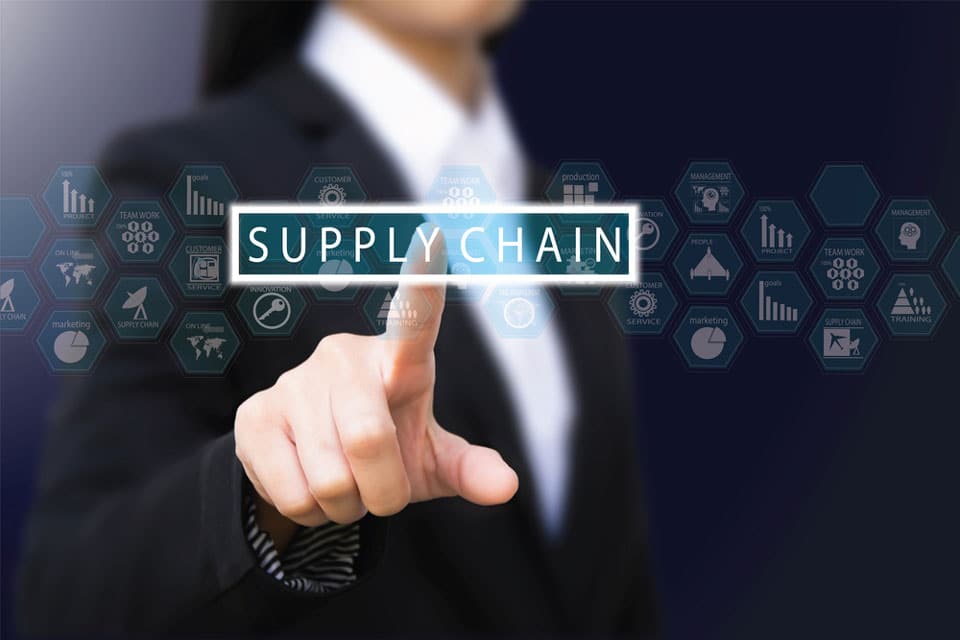IoT Temperature Sensors for Supply Chain Safety

Short and Long-Term Reasons for IoT Temperature Sensor Use Across Industries: The ability to accurately and quickly track temperature data throughout the supply chain and logistics process affects the viability of many product types. Companies and entire industries rely on precise ranges of temperatures in order to deliver safe and effective products or materials to other organizations or the end user. The best way to make sure everything works as intended is to use IoT temperature sensors from a reputable brand. These small and affordable devices have powerful onboard data collection sensors and communication capabilities that make monitoring simple.
IoT temperature sensors are a first line of defense against a long list of issues associated with cold chain supply lines, logistics, and freight forwarding. By understanding both the immediate benefits and long-term effects of their use, your company can make smarter choices for sustained success.
Why Use IoT Temperature Sensors?
To put it simply, IoT temperature sensors are the best method for maintaining cold chain optimization for sensitive products and materials. By constantly monitoring and recording data, these sensors can help ensure that products are kept at the correct temperature throughout the handling and transport process.
This is especially important for items that are sensitive to temperature changes, such as pharmaceuticals and food products. IoT temperature sensors can provide real-time data that can be used to make decisions about how to best store and transport products. In addition, the data collected by these sensors can be used to improve cold chain management processes over time.
Negative Outcomes of Cold Chain Problems
What happens if the temperature control systems in a truck, airplane, or warehouse fail? What if you do not know this happens until the pallets or loads arrive at their destination. Angry buyers faced with unusable products or materials can negatively impact your brand reputation for a long time. Consider the specific negative impacts of cold chain problems to help you decide that IoT temperature sensors are the number one best way to prevent or remediate issues before they get worse.
1 – Spoilage — This is especially common in the food industry. If fresh, refrigerated, or frozen food does not maintain the ideal temperature consistently, it will end up in the landfill instead of in a restaurant kitchen or on store shelves. How much time and money will you waste by delivering a truckload of rotten vegetables and not knowing about it until the buyer opens the first case?
2 – Regulatory Noncompliance – Government and trade organizations have strict and specific guidelines for everything from proper handling procedures to acceptable temperature levels. Even if your products are functionally usable when they reach their destination, inconsistent temperatures or improper settings can get you in legal trouble and affect future business.
3 – Delays and Inefficiencies – Human error in temperature tracking and record keeping can lead to inefficient outcomes. Spoiled shipments lead to serious delays as you will have to send out another load of prepared products very quickly. The more control you have over your entire supply chain, the more efficient you can make it.
4 – Company Reputation – Dissatisfied customers will either cancel their contract with your company or speak out about the negative experience. The last thing you want is poor public relations when every interaction fuels your quest for success. IoT temperature sensors help you manage expectations and respond to potential issues as fast as possible. These two things do more to maintain a positive company reputation than anything.
Industry and Niche-Specific Benefits
What industries and specific business niches need IoT temperature sensors?
- Fresh fruit, vegetable, and animal product providers
- Frozen or chilled food processing plants
- Pharmaceutical and medical firms
- Nutritional supplements, vitamins, and herbals
- Vaccination suppliers for human and animal use
- Chemical distributers that require temperature control
- Sensitive items like antiques, books, organic textiles
- Petroleum, wax, or oil-based products like cosmetics and candles
- Fresh flower and plant growers and landscaping firms
These powerful devices with on-board sensors are becoming more popular in the food industry as a way to prevent spoilage and loss. By monitoring the temperature of food products, businesses can save money and increase efficiency.
IoT temperature sensors can help businesses reduce food waste by preventing spoilage. By monitoring the temperature of food products, businesses can keep them at the optimal temperature to prevent spoilage. This can save businesses money by reducing the amount of food that is wasted due to spoilage.
In addition to reducing food waste, IoT temperature sensors can also help businesses increase their efficiency. By monitoring the temperature of food products, businesses can ensure that they are being stored and transported at the optimal temperatures. This can help businesses save time and money by ensuring that their food products are not spoiled during transport or storage.
Long-Term Success Depends on Data
Temperature is one of the most important data points in any supply chain involving products that require unique environmental conditions. By monitoring temperature with IoT temperature sensors, companies can save money and increase efficiency. By always knowing the precise temperature, companies can avoid potential issues that could arise from inaccurate readings.
In addition to saving money, IoT temperature sensors can also help companies speed up operations. With real-time data on hand, companies can make decisions that will help them get their products to market faster. In a competitive marketplace, every advantage is important, and IoT sensor data can give companies the edge they need to succeed.
Ultimately, long-term success in the supply chain depends on data. With accurate information about temperatures, companies can avoid costly mistakes and keep their operations running smoothly. IoT temperature sensors are a crucial tool for anyone looking to improve their supply chain management. That is why it makes sense to explore the many options Eelink offers. As long-time successful manufacturers of a variety of trusted shipment sensors and trackers, they are a smart partner in your supply chain success.
Have you read?
Best Business Schools In The World For 2022.
Best Fashion Schools In The World For 2022.
Best Hospitality And Hotel Management Schools In The World For 2022.
Best Medical Schools In The World For 2022.
The World’s Best Universities For Doctor of Business Administration (DBA), 2022.
Add CEOWORLD magazine to your Google News feed.
Follow CEOWORLD magazine headlines on: Google News, LinkedIn, Twitter, and Facebook.
Copyright 2024 The CEOWORLD magazine. All rights reserved. This material (and any extract from it) must not be copied, redistributed or placed on any website, without CEOWORLD magazine' prior written consent. For media queries, please contact: info@ceoworld.biz









